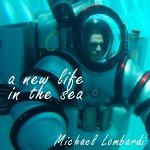 Having just read Travis Detke’s welcoming editorial in the recent Ocean News & Technology magazine (December 2014), I feel compelled to respond. The short is well written, and frankly hits the nail on the head in identifying the current state of the aquatic state.
Having just read Travis Detke’s welcoming editorial in the recent Ocean News & Technology magazine (December 2014), I feel compelled to respond. The short is well written, and frankly hits the nail on the head in identifying the current state of the aquatic state.
Two points resonated most, where:
1. both the physics and physiology of diving have not changes.
2. performance pressure, today, includes safety awareness (moreso than in the past).
On the latter, generally I believe this to be a good thing, as emphasis on safety – namely protecting the human – is paramount to justify ongoing investment into human intervention, be it for industry, science, sport, or other. I have personally seen a few sides of this, having spent well over a decade working for small contractors where job performance is often pushed to the point of potentially compromising safety to achieve work objectives in short time frames (to increase profits); and more recently working for a larger corporation that prides itself on safe practices and pricing projects appropriately to include the safest means to perform.
As I’ve let’s say ‘matured’ in my diving career, I’ve become more risk adverse, however am still deeply intrigued by working ‘out on the edge’. With that inquisition comes a commitment to evaluate new practices, and in many cases develop or adopt new technology – all to, ultimately, improve safe human performance.
On the former point – of physics and physiology – indeed these have not changed, perhaps albeit ever so undetectably slow as we humans continue in our natural course of evolution. While we must surely make investments and cultural change to improve safe practices, we must be careful as to not box ourselves in with fear of the unknown. This doesn’t speak to ‘stunts’ or ‘extremism’, rather logical deductive evolutions of advancement. This happens in all fields, and it should happen in diving as well.
This evolution comes back to the two fundamental challenges in diving, and deeper diving: we either need to evolve the human, or protect the human from the environment. By playing somewhere in between, we are subject to the mass of complications that we call the diving industry today. Generally, I think we’ve done a pretty good job with what we’ve got, but surely it can’t hurt to continue to understand limitations (both perceived and real), and make sound investments to continue to nudge our little species towards its sustainable future – a new life in the sea.
Donate today using Google ‘One Today’ program to help us redefine the human element and develop new content. Donate $1 today!




